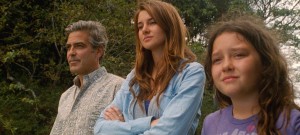Allied
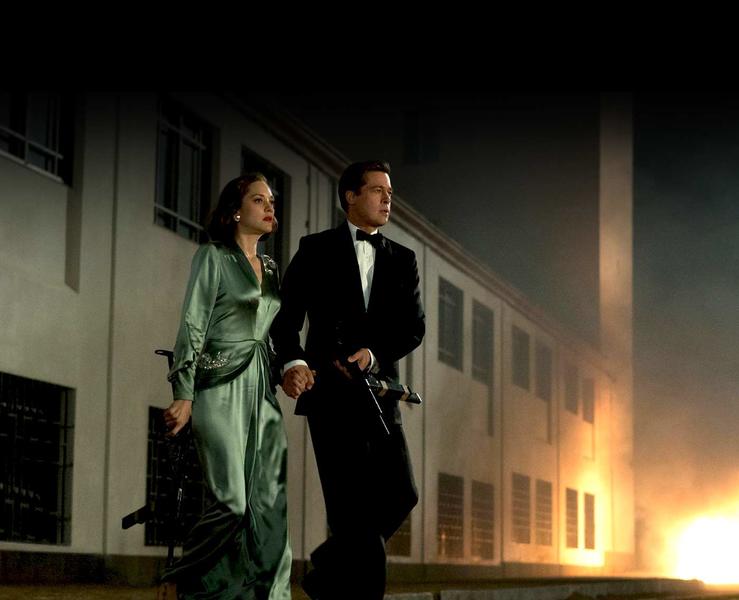 Brad Pitt and Marion Cotillard star as WWII spies who go undercover as husband and wife to assassinate a German ambassador. Afterward, they become husband and wife for real…until a huge conflict arises that might make it impossible for them to remain allied.
Brad Pitt and Marion Cotillard star as WWII spies who go undercover as husband and wife to assassinate a German ambassador. Afterward, they become husband and wife for real…until a huge conflict arises that might make it impossible for them to remain allied.
This Robert Zemeckis-directed film is all about old-Hollywood glamor and style. Though the plot is hardly groundbreaking, Cotillard and Pitt are gorgeously lit and attired (costume designer Joanna Johnston had better be nominated for an Oscar) and they do generate some heat. Their collective star power charges the film.
If you’re the type who often thinks, “They sure don’t make movies like they used to,” Allied might be the ticket for you.
Rules Don’t Apply
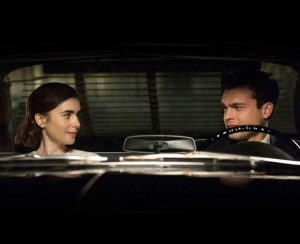 Warren Beatty’s latest directorial effort also travels back in time, starting in 1964 and then going back five years earlier, with Beatty playing Howard Hughes.
Warren Beatty’s latest directorial effort also travels back in time, starting in 1964 and then going back five years earlier, with Beatty playing Howard Hughes.
But it’s not just about Hughes; the story centers on a young couple, a starlet (Lily Collins) Hughes brings out to Hollywood for a screen test, and the starlet’s driver (Alden Ehrenreich).
Peppered throughout are lots of name actors, including Annette Bening, Candice Bergen, Matthew Broderick, Martin Sheen, Ed Harris. But except for the always riveting Bening, the stars are given nothing to do, and some are practically background actors. I can only speculate they took the gig because they’re Friends of Warren.
Instead, the most screen time goes to the least interesting actors of the bunch: Collins and Ehrenreich, with Collins the bigger problem. She looks good in period costumes but it’s all surface and no depth, and every line out of her mouth is unconvincing. Ehrenreich doesn’t have much to play with, but he has a kind of stillness that hints at something interesting. I guess we’ll see if he’s got any swagger when he suits up as the young Han Solo.
Beatty’s rambling script is problematic, too. It can’t decide if it’s about Hughes or the young couple or aeronautics or Hollywood or all of the above or what. Characters say random lines and talk at not with each other, creating a disconnect like they’re doing different scenes while in the same one. I’m calling this a turkey, though not the delicious kind.
Manchester by the Sea
 Casey Affleck and Lucas Hedges play uncle and nephew bonding in the aftermath of a family member’s death. Michelle Williams and Kyle Chandler costar as Affleck’s ex-wife and brother.
Casey Affleck and Lucas Hedges play uncle and nephew bonding in the aftermath of a family member’s death. Michelle Williams and Kyle Chandler costar as Affleck’s ex-wife and brother.
If you’ve followed Williams’s and/or director/writer Kenneth Lonergan’s (You Can Count on Me) career, you know neither makes happy movies. It’s as if Williams only wants to explore the depths of grief in her work. But she’s so good at it, and her scene near the end of Manchester is devastating.
It’s not all sad, though; the movie does have moments of humor and Affleck makes emotional numbness compelling. Manchester will likely get multiple nominations for acting and/or writing and directing, so check it out to see what the buzz is about.
Lion
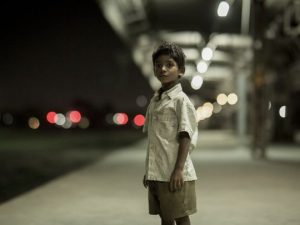 I’ve saved my favorite for last.
I’ve saved my favorite for last.
Lion is based on A Long Way Home, Saroo Brierley’s 2014 memoir, and tells the tale of how 5-year-old Saroo got lost in 1986 on a train in India, ending up on the streets for more than a month, with no money and only a vague idea of the name of his hometown. He’s eventually taken to an adoption agency and is adopted by Sue and John Brierly (Nicole Kidman, David Wenham) of Tasmania, Australia.
Saroo never stops searching for home, however, and 25 years later, while using Google Earth, he sees an image that fits his hazy memories of where he lived as a boy. But is his family still there?
It’s incredible that Sunny Prewar, who plays the young Saroo (Dev Patel takes over in the later years), has never acted before. The boy is a natural, effortlessly carrying the first half of the movie on his tiny shoulders. The rest of the cast is strong, too; Kidman shows the kindly Sue could also be fierce with just a look.
I was a sobbing mess by the time this movie ended, but they were emotional, life-affirming tears. Even if crying at the movies is not your thing, Lion inspires hope that however far away from home you might find yourself, you don’t have to remain lost forever.
Which movie(s) are you looking to see this week? If you’re considering Fantastic Beasts and Where to Find Them, that review is here.
I’ve also seen a bunch of other top award contenders, including La La Land, Jackie, and Hidden Figures, and will post reviews in the next couple of weeks.
Happy Thanksgiving!
Photos: Allied/Paramount, Rules Don’t Apply/Twentieth Century Fox, Manchester by the Sea/Amazon Studios, Lion/The Weinstein Company
]]>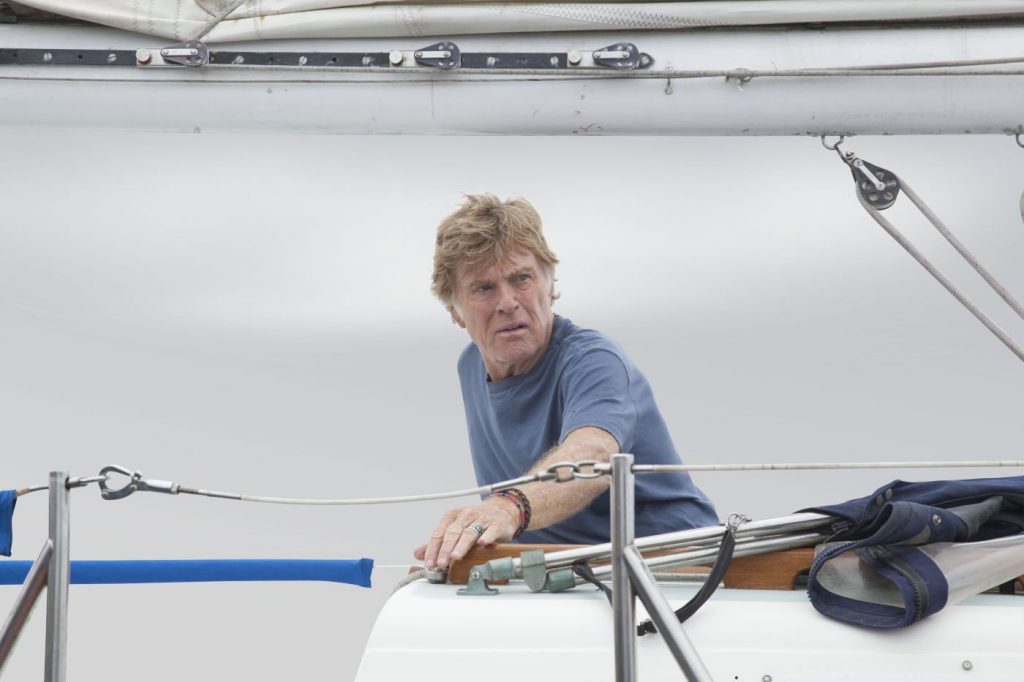
Robert Redford stars in a one-person show as a man whose boat (and radio equipment) is incapacitated somewhere in the Indian Ocean and he struggles for 8 days to find land.
If you think that plotline sounds boring, the movie is decidedly not. Watching Redford—we never learn his character’s name—battle one catastrophe after another is quite suspenseful. At first, he faces the obstacles with the calmness of an experienced seaman. But then sh*t keeps happening, and we slowly see his humanity and will to survive stripped away.
Redford commands the screen, and with almost no dialogue (there’s a short bit of voice-over at the beginning, and he lets loose a profanity at one point but that’s it), he manages to convey the man’s intelligence as he considers each new crisis and figures out how to deal with it.
I like that he’s smarter than we are, and how each step isn’t explained to the audience. Because I know nothing about boating, a few times I didn’t get what the man was doing as he yanked this gizmo or turned that doodad on his boat, but there was great satisfaction (and internal “Aha!”s) when I could understand his intentions, such as how he planned to turn saltwater into drinkable water. Kudos to Redford and writer/director J.C. Chandor for being able to elucidate the character’s motivations without spoonfeeding.
Where the story falters, though, is in not telling the audience anything about the man’s past. Why is he even in the Indian Ocean? This movie has been compared to Gravity for also showcasing a person stranded among frightening natural elements and fighting to survive. But with Gravity, the emotional arc of Sandra Bullock’s scientist is clear. We know where she is at the beginning of the movie, and how she has changed by the end.
MILD SPOILER AHEAD
Knowing nothing about the man’s past in All Is Lost, we have no idea how this ordeal changes him, if at all. The whole point of any story is to invite the viewer to go on a journey to see how it affects the lead character(s), but I don’t know how the man’s life/personal outlook will be different after this experience. I can’t determine how far he’s come if I don’t know where he started. Maybe he was already Gandhi-like before he was stranded and didn’t need big life lessons to be so rudely thrusted upon him.
The lessons to learn from All Is Lost, then, are that Redford is still very much a leading man; a movie doesn’t need fancy effects, more than one character, or even dialogue to hold interest; but, like the man, a story still needs certain basic elements to stay afloat.
Nerd verdict: Redford’s All good; backstory is Lost
Photo: Roadside Attractions
]]>
The AFI Fest started last week (wrapping up today) and for the third year, I’ve been attending as a press member. Last night was the annual “Secret Screening,” revealed at the last minute as Skyfall. Guess who fell out of her chair when she read that announcement?
Mr. PCN and I hustled down to Grauman’s Chinese Theatre in Hollywood, and following are our reactions to the 23rd James Bond movie, directed by Sam Mendes and starring Daniel Craig, Dame Judi Dench, Javier Bardem, Ralph Fiennes, and Naomie Harris. The spoiler-free plotline is that things get personal for M.
Mr. PCN: I love the title sequence. Reminds me no one else does it like that.
PCN: It was gorgeous and hypnotic. I can’t hum Adele’s tune, though.
Mr. PCN: As with most Bond movies, the opening action was awesome.
PCN: It was intense. Love how the audience cheered when he first appeared.
Mr. PCN: Craig is wonderful, but he looks a little more beat-up than usual. It makes sense in context of the plot, but was still startling.
PCN: Like you said, he had to look like that, considering all that happens to him in just the first fifteen minutes. Makes him more human. But then he puts on those Tom Ford suits and all is right with the world again. I was obsessed with those suits! They could cut you, they were so sharp. They fit him so well, in silhouette he looked naked.
Mr. PCN: *rolls eyes*
PCN: These are astute observations. Costumes are an important part of cinema.
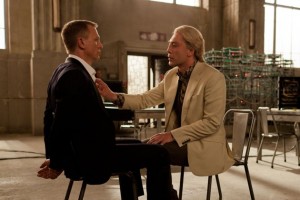 Mr. PCN: Uh-huh. Moving on to Bardem. It’s no surprise he shines as the villain. His performance is flawless, and the flirtation scene between him and Bond is hilarious.
Mr. PCN: Uh-huh. Moving on to Bardem. It’s no surprise he shines as the villain. His performance is flawless, and the flirtation scene between him and Bond is hilarious.
PCN: Bardem is mesmerizing. He’s so unpredictable; I could never tell when he was going to smile at someone or kill them. He doesn’t overdo the villainy, but instead exudes charm and humor, which makes him even scarier, a la Hannibal Lecter. And his introduction via that one long take in which he does the monologue while walking slowly toward the camera is well done. What’s with him and ugly character hairdos, though?
Mr. PCN: Ha! What I want to know is: Why is Bérénice Marlohe getting so much press when her Sévérine is so underwhelming?
PCN: I agree. Naomie Harris, though, is sexy because she’s smart and competent.
Mr. PCN: She’s more of a driving force. Q is bit of a conundrum. He’s not as fun as John Cleese or Desmond Llewelyn. And Q’s gotta have fun with Bond and his gadgets.
PCN: And he’s not that smart. Makes mistakes, and is kind of slow to realize things that seem obvious to viewers. Not Ben Whishaw’s fault, though, more the way the role was written. What did you think of the action sequences?
Mr. PCN: The opening train-and-crane is the best.
PCN: Yeah. Supposedly, most of the stunts were real, not CGI’d. Craig had to fight on a moving train, tethered to a safety line, and told not to look down.
Mr. PCN: Komodo dragon was good, too. Short and snappy.
PCN: The Shanghai fight was nicely shot, against the neon lights and shadows.
Mr. PCN: But it was kind of confusing.
PCN: Yes! I wish some of the fights were filmed in two-shots so we could see the choreography more. As is, there are a lot of fast cuts and closeups. I couldn’t see the moves or tell what was going on sometimes.
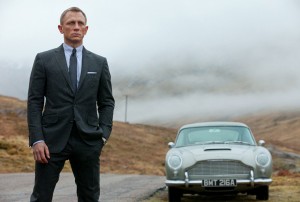 Mr. PCN: I enjoyed the nods to early Bond films, like the Aston Martin DB5.
Mr. PCN: I enjoyed the nods to early Bond films, like the Aston Martin DB5.
PCN: With the original plate from Goldfinger! And when Q gives Bond simple gadgets and says, “Were you expecting an exploding pen? We don’t really go in for that anymore.”
Mr. PCN: I don’t think this breaks any new ground, but harkens back to vintage Bond.
PCN: I think it’s both old and new. Several important elements were reinvented, but with reverence to what’s gone before.
Verdicts: Mr. PCN—Skyfall floats, but doesn’t rise; PCN–Skyfall‘s a solid soldier
Note: Besides the AFI Fest, the Variety Screening Series has also begun. Check back soon for reviews of Anna Karenina, Hitchcock, Silver Linings Playbook, and Life of Pi.
Photos: Francois Duhamel/Columbia Pictures
]]>
If you’ve seen Oliver Stone’s U-Turn or Natural Born Killers, and/or have read the Don Winslow novel on which this movie is based, Savages is pretty much what you’d expect it to be—violent, in your face, with strong acting, dark humor, and overly saturated sun-soaked images.
Stone’s style is a good match for the story of pot growers/dealers Ben (Aaron Johnson) and Chon (Taylor Kitsch), living the high life in Laguna Beach, CA, with their mutual girlfriend O (short for Ophelia, played by Blake Lively). Things get ugly when a Mexican cartel led by the ruthless Elena (Salma Hayek) wants a piece of their business and kidnaps O to make sure the guys cooperate. But instead of rolling over and playing nice, Ben and Chon get mad and risk everything to get O back.
 The three leads do an adequate job—Lively is most effective in captivity when her face is scrubbed clean of makeup and she shows her vulnerable side—but they can’t hold a candle to the veteran supporting cast. Hayek is fierce as the cartel’s leader, and just as convincing as a mother desperately trying to connect with her daughter. Benicio Del Toro seems to have really enjoyed playing Elena’s enforcer, Lado, managing to get some laughs despite his character being terrifying (think Javier Bardem’s Anton Chiguhr in No Country for Old Men). As a dirty DEA agent, John Travolta sinks his teeth into his role and chews up the scenery, too.
The three leads do an adequate job—Lively is most effective in captivity when her face is scrubbed clean of makeup and she shows her vulnerable side—but they can’t hold a candle to the veteran supporting cast. Hayek is fierce as the cartel’s leader, and just as convincing as a mother desperately trying to connect with her daughter. Benicio Del Toro seems to have really enjoyed playing Elena’s enforcer, Lado, managing to get some laughs despite his character being terrifying (think Javier Bardem’s Anton Chiguhr in No Country for Old Men). As a dirty DEA agent, John Travolta sinks his teeth into his role and chews up the scenery, too.
A couple things were less successful. First was the voice-over narration done by Lively in languid, SoCal mode; Winslow’s language is snappy and kinetic in the book. The second thing…
**SPOILER AHEAD IF YOU’VE READ THE BOOK; SAFE IF YOU HAVEN’T**
…was the ending was changed. It’s still in the movie, but it’s not the same. What made the novel memorable were its beginning and ending; the revision here is too safe, taking the claws out of something called Savages. Next to me in the theater, though, was a woman who had not read the book (based on her reactions) and she seemed to prefer the movie’s conclusion, so I guess it was altered for viewers like her.
**END OF SPOILER**
Moviegoers attracted to Savages because of Stone and the cast will enjoy a solid thriller. For fans of the novel—Winslow co-wrote the screenplay with Stone and Shane Salerno—it’s a kick seeing it on screen until it gets compromised, which is ironic since Ben and Chon are all about not compromising.
Nerd verdict: Faithful Savages ’til the end
Photos: Universal
]]> If you haven’t heard already, let’s just get this out of the way: Michael Fassbender goes full frontal and this movie is rated NC-17. But neither is the reason you should see it. Despite its provocative elements, the most memorable thing about Shame is Fassbender’s raw, fearless performance.
If you haven’t heard already, let’s just get this out of the way: Michael Fassbender goes full frontal and this movie is rated NC-17. But neither is the reason you should see it. Despite its provocative elements, the most memorable thing about Shame is Fassbender’s raw, fearless performance.
Brandon (Fassbender) is a sex addict, a guy who can’t get through the day without surfing porn sites at work and taking bathroom breaks to relieve himself in a way that doesn’t fall under number one or two. But he can’t do it when emotional connections are involved; the sex has to be anonymous and meaningless.
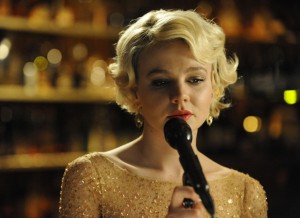 All this comes to a head when his sister Sissy (Carey Mulligan, who also appears nude) shows up at his place and asks to stay for an unspecific amount of time. The two have a prickly relationship, she has her own issues, and they both descend into their separate hell before there’s hope that they might start to heal.
All this comes to a head when his sister Sissy (Carey Mulligan, who also appears nude) shows up at his place and asks to stay for an unspecific amount of time. The two have a prickly relationship, she has her own issues, and they both descend into their separate hell before there’s hope that they might start to heal.
If the synopsis sounds skimpy, it’s because this is more a character study, which is not normally my bag since I’m more into plot-driven movies. The subject matter isn’t something I’m usually drawn to, and Brandon and Sissy aren’t exactly lovable. So why do I recommend it? Because Fassbender’s hypnotic work—yes, his acting—made it impossible for me to look away, and weeks after I saw it, his performance still resonates as one of the most powerful I’ve seen this year.
Despite Brandon’s problem, Fassbender makes him sympathetic. He’s not lascivious or skeevy; he’s quite the gentleman to women he has feelings for (he calls up prostitutes to feed his addiction). His physical nudity isn’t as striking as the emotional nakedness. There’s a scene when Brandon, in the middle of a sex act, suddenly has a look of self-loathing that’s so startlingly painful, it’s the most graphic shot in the film. And this is with the camera staying tight and long on Fassbender’s face.
Ah, his face—the most valuable asset in Shame. Director/writer (with Abi Morgan) Steve McQueen likes long, close-up takes, and not every actor has enough confidence or skill to withstand them. Luckily, the leads here are up to the task, even if I found some of those long takes unnecessary. Mulligan sings New York, New York in a slow jam with the camera examining her every pore for what felt like half an hour—why?
 More effective are the extended shots of Brandon on the subway, looking at the female passengers around him. He sits perfectly still, but you can see everything happening in his eyes—the moment he latches on to a possible conquest, what he’s thinking about doing with her, how he’ll feel about it afterward. He might experience some shame, but for this performance, Fassbender can be proud.
More effective are the extended shots of Brandon on the subway, looking at the female passengers around him. He sits perfectly still, but you can see everything happening in his eyes—the moment he latches on to a possible conquest, what he’s thinking about doing with her, how he’ll feel about it afterward. He might experience some shame, but for this performance, Fassbender can be proud.
Nerd verdict: Powerful Shame
Photos: Fox Searchlight/Abbot Genser
]]>
Writer/director Alexander Payne has a thing for making films about people who aren’t readily likable, the type we laugh at, not with. Ruthlessly ambitious Tracy Flick from Election, pregnant junkie Ruth from Citizen Ruth, and depressed Miles and philandering Jack from Sideways aren’t the kind of company most of us would want to keep in real life. But while his latest protagonist from The Descendants—an adaptation of Kaui Hart Hemmings’s novel—is flawed in many ways, Matt King is someone audiences can root for. The fact that he’s portrayed by George Clooney has a lot to do with that, but not for the obvious reasons.
Matt is a lawyer living in Hawaii whose wife, Elizabeth, slips into a coma after incurring head trauma in a boating accident. He’s suddenly faced with raising his two daughters (Shailene Woodley and Amarie Miller), something he’s rather helpless about, having been the “back-up parent.” Worse, he finds out from his older girl, Alex, that his wife had been having an affair. He takes his kids and Alex’s doofus friend (Nick Krause) on a trip to track down Elizabeth’s lover. In the midst of all this, he also has to decide whether to sell to developers the acres of untouched land that have been in his family for generations, a deal that would make him and his cousins phenomenally rich but may not be best for the island.
Audiences have never seen Clooney like this—he’s an ineffective man. There is nothing slick or sly about him. Yes, he’s successful professionally but out of his depth in his personal life. He doesn’t know how to communicate with his daughters, he can’t seem to even get angry at his wife for cheating on him, he takes verbal abuse from his father-in-law (Robert Forster), who irrationally blames Matt for Elizabeth being in a coma (Matt wasn’t even there when the accident occurred), and when he does come face to face with her boyfriend, he doesn’t confront him in the way we’d expect, though the scene is much more affecting for it. Clooney internalizes Matt’s struggles, and there are times when I wanted him to explode, to express his anger and pain, but that would have been predictable and Clooney’s performance is anything but. Matt may suffer quietly, but he’s not a doormat, and in the end he shows that perhaps he has more backbone and dignity than anyone else.
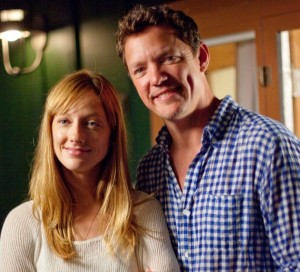 The supporting cast is superb, even Matthew Lillard, aka Shaggy from the Scooby-Doo movies, as Elizabeth’s lover. His pivotal scene with Clooney shows more depth than I’ve ever seen in his previous work. Judy Greer also has a memorable scene when her character—don’t want to spoil who she plays—behaves in a completely surprising way.
The supporting cast is superb, even Matthew Lillard, aka Shaggy from the Scooby-Doo movies, as Elizabeth’s lover. His pivotal scene with Clooney shows more depth than I’ve ever seen in his previous work. Judy Greer also has a memorable scene when her character—don’t want to spoil who she plays—behaves in a completely surprising way.
The big discovery, though, is nineteen-year-old Woodley (The Secret Life of the American Teenager). When we first meet Alex, I thought she’d be the kind of sullen, disrespectful teenager I have no patience for. But as the movie progresses, Alex slowly becomes not only someone who takes her father’s side, but a substitute mother to her ten-year-old sister. Woodley’s performance, combined with her striking looks and husky voice, signals a major star in the making.
 Payne said something in the post-screening Q&A that best sums up what he did with this movie. He quoted Billy Wilder: “Say 2+2, never say 4.” (Clooney interjected, “Some [American films] say 5.”) Descendants is as striking for what Payne chose to omit as for what he included. When he said he didn’t show certain things because the audience already knows what happened, he’s absolutely right. I so appreciated his decision because obviousness is a pet peeve of mine in narrative fiction. How often does a director trust viewers to use their imagination to fill in the blanks?
Payne said something in the post-screening Q&A that best sums up what he did with this movie. He quoted Billy Wilder: “Say 2+2, never say 4.” (Clooney interjected, “Some [American films] say 5.”) Descendants is as striking for what Payne chose to omit as for what he included. When he said he didn’t show certain things because the audience already knows what happened, he’s absolutely right. I so appreciated his decision because obviousness is a pet peeve of mine in narrative fiction. How often does a director trust viewers to use their imagination to fill in the blanks?
What Payne didn’t leave out was humor, making us chuckle even while the characters squirm in uncomfortable situations. He also used entirely pre-existing Hawaiian music for the soundtrack because he wanted to “give a gift to Hawaii.” In the process, he also created one for the rest of us.
Nerd verdict: Transcendent Descendants
Photos: Fox Searchlight Pictures
]]>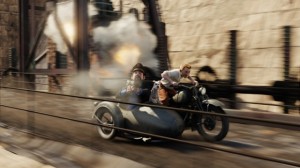 I was thrilled to hear over the weekend that most of the first reviews for The Adventures of Tintin: The Secrets of Unicorn are not only positive, but overwhelmingly so! Many of you know the Tintin books are the first titles I remember reading on my own as a kid and absolutely loving. Despite the fact this movie was directed by Steven Spielberg and produced by Peter Jackson, I was concerned it wouldn’t deliver the sense of wonder I felt experiencing Hergé’s work. The trailers didn’t quite win me over, either.
I was thrilled to hear over the weekend that most of the first reviews for The Adventures of Tintin: The Secrets of Unicorn are not only positive, but overwhelmingly so! Many of you know the Tintin books are the first titles I remember reading on my own as a kid and absolutely loving. Despite the fact this movie was directed by Steven Spielberg and produced by Peter Jackson, I was concerned it wouldn’t deliver the sense of wonder I felt experiencing Hergé’s work. The trailers didn’t quite win me over, either.
But the reviews coming in from Europe, where the movie will open later this month (December 21 in the U.S.—argghhh!) are comparing it to the Indiana Jones movies, using descriptors like “visually splendid,””gorgeous,” “stunning,” “lavish,” and “breathless.” The Hollywood Reporter says it’s “a good ol’ fashioned adventure flick that harkens back to [Spielberg]’s action-packed, tongue-in-cheek swashbucklers of the 1980s.” It’s almost enough to make me hop on a plane to France so I can see it two months before its stateside release.
If interested, you can read full reviews from The Sun (UK), The Hollywood Reporter, and HitFix.
Anyone else as excited as I am?
]]>
Wormald and Hough
When I posted on Facebook that I had gone to a Paramount screening of the Footloose remake (out October 14), one of my friends jokingly threatened to disown me because I was apparently being disloyal to the original. Well, the 1984 movie was enjoyable but it wasn’t great (let’s face it—the soundtrack elevated it) so I was willing to keep an open mind.
My conclusion was that it didn’t need to be remade because this version doesn’t improve or change the story in any significant way. All the major plot points are intact, and it’s still a corndog movie minus the advantage of being first.
If you’re, oh, under twenty years old and have never been exposed to Footloose, the very slim plotline involves Ren McCormack (Kenny Wormald) coming down from Boston after his mother dies to live with his Uncle Wes (Ray McKinnon) in a small town called Bomont. Much to his chagrin, he finds that the law there doesn’t allow public dancing since five teens were killed three years earlier after a night of dancing and drinking. Ren locks horns with Reverend Shaw Moore (Dennis Quaid), a staunch supporter of the law since his son was one of the kids who died. But the reverend’s daughter, Ariel (Julianne Hough), has much more amorous feelings toward Ren and together they set out to challenge the law so they can have their dance.
Though I never looked at Kevin Bacon in the original and thought, “Wow, this is a great actor who’s still going to be relevant in thirty years,” he infused Ren with an innate sense of confidence and mischief while Wormald seems to be only playing at cockiness. It’s obvious he was hired more for his dancing than acting skills, and he does okay, but that’s not enough when he’s the lead. He acquits himself better than Hough, though, who looks gorgeous but doesn’t yet have the depth of talent to convey Ariel’s little-girl-lost quality. She comes across reckless and petulant instead of as someone in pain who’s overcompensating. Then again, the script (by Dean Pitchford and Craig Brewer, who also directed) doesn’t allow her to be very sympathetic. And Quaid, famous for his roguish screen presence, is all wrong as the uptight reverend.
If there’s a reason to see this movie, it’s Miles Teller, who steals every scene as Ren’s friend Willard, the boy who can’t dance who was first played by the late Chris Penn (Teller even resembles him a little). Teller is funny and full of crackling energy, which is especially amazing if you saw him in Rabbit Hole, where he imbued an intensely dramatic role with grace and stillness.
And the music—when I heard the opening beats and guitar riffs of the title track, with Blake Shelton stepping in for Kenny Loggins, my feet did cut loose a little under my seat. But this version sounds almost exactly the same as the other, which again begs the question of why it was remade. One of the songs, “Holding Out for a Hero,” was reinvented but not in a good way. While Bonnie Tyler sang it as an anthemic number, Ella Mae Bowen turns it into a treacly ballad that’s almost unrecognizable. By the time “Let’s Hear it for the Boy” comes on, with Jana Kramer covering Deniece Williams’s hit, the soundtrack had swung back to sounding familiar, but it also makes you want to just go back and listen to the original.
Nerd verdict: Footloose doesn’t cut it
Photos: Paramount
]]>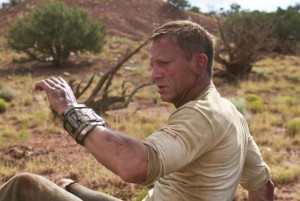 But first, a quick synopsis: A man (Daniel Craig) wakes up in a desert town with no memory of his name or where he came from. He has a strange metal cuff on his left arm that can’t be removed. He encounters the sheriff (Keith Carradine) and the cattle rancher (Harrison Ford) who seems to control the town, and gets caught up in an alien attack the very night he arrives. A beautiful woman (Olivia Wilde) says she needs the stranger’s help and next thing he knows, he’s out to get the town’s abductees back.
But first, a quick synopsis: A man (Daniel Craig) wakes up in a desert town with no memory of his name or where he came from. He has a strange metal cuff on his left arm that can’t be removed. He encounters the sheriff (Keith Carradine) and the cattle rancher (Harrison Ford) who seems to control the town, and gets caught up in an alien attack the very night he arrives. A beautiful woman (Olivia Wilde) says she needs the stranger’s help and next thing he knows, he’s out to get the town’s abductees back.
Pop Culture Nerd: This is one of those instances when the actors make the script look way better than it probably reads.
Eric Edwards: Yeah, with no-name actors, this would not have been as good, but the title is what drew me in. C’mon, it’s Cowboys & Aliens! Who wouldn’t want to see that?
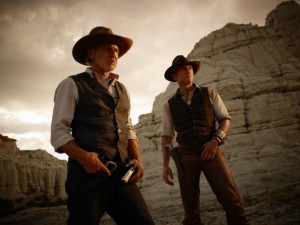 PCN: Uh, I need more than a title. Sometimes you have a great title and a movie that’s garbage. Other times, the reverse is true. I went because of Daniel Craig and Harrison Ford. I like Olivia Wilde, too, but she’s not the main attraction. It’s not their fame, though, that elevated this movie. It’s their talent. Craig made the movie. Ford was chomping hard on that Western scenery at times but I forgave him because, you know, he’s Harrison Ford. I love Han and Indy too much to hate on him. For now.
PCN: Uh, I need more than a title. Sometimes you have a great title and a movie that’s garbage. Other times, the reverse is true. I went because of Daniel Craig and Harrison Ford. I like Olivia Wilde, too, but she’s not the main attraction. It’s not their fame, though, that elevated this movie. It’s their talent. Craig made the movie. Ford was chomping hard on that Western scenery at times but I forgave him because, you know, he’s Harrison Ford. I love Han and Indy too much to hate on him. For now.
EE: This was like a big bucket of popcorn. While you’re eating it, you’re enjoying the salt, the butter, the crunchy. But as soon as you’re done, you realize you didn’t eat anything nourishing.
PCN: I agree but I don’t think the filmmakers were trying to make a steak dinner. It’s OK to simply aim to make an entertaining movie, which this is for the most part. I enjoyed it, but it didn’t stop me from noticing its flaws. With such a fantastic premise, it could have been so much better.
EE: What did you think of Daniel Craig’s character?
PCN: I like him but he’s a cipher in the beginning of the movie, to himself and to us because he has amnesia. It’s hard for me as a viewer to have deep emotional stakes in a character who doesn’t know exactly what he stands for.
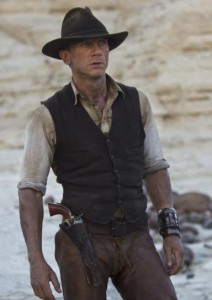 EE: We saw what he stood for! He didn’t try to cause harm. He only defended himself when he had to.
EE: We saw what he stood for! He didn’t try to cause harm. He only defended himself when he had to.
PCN: That’s not really standing for something. Most people, even criminals, have an innate defense mechanism when they’re threatened. It doesn’t make them heroic.
*Mild spoiler*
EE: Yeah, but it’s how they approach their situations. I never felt that The Stranger/Jake reacted in any way that was purely selfish. That’s why it’s kind of surprising to find out he’s a wanted man.
*End spoiler*
PCN: Don’t get me wrong. I was definitely rooting for him because Craig gave him gravitas. He has such incredible presence, even when he’s not speaking, that you know The Stranger is the guy everyone will pin their hopes on without even knowing if he’s good or bad because he’s the only one who can get the job done. I give Craig credit for bringing that. I don’t think it was on the page.
EE: Yeah, he radiates cool with an underpinning of danger.
 PCN: And his pants were tight. I wasn’t looking but they kept showing the view. But I digress. It’s interesting how, compared to Craig’s stillness, Ford seemed over the top. He looked like he was posturing and he’s usually the king of deadpan.
PCN: And his pants were tight. I wasn’t looking but they kept showing the view. But I digress. It’s interesting how, compared to Craig’s stillness, Ford seemed over the top. He looked like he was posturing and he’s usually the king of deadpan.
EE: He and Craig were kinetic together, but when Ford had scenes with other characters, they didn’t play as well. It’s like Craig grounded him.
PCN: I was choking a little on the cornball manly dialogue between Ford’s character and the young boy, Emmett (Noah Ringer). The whole business about the knife was too foreshadowy and heavy-handed, and what he said to Adam Beach’s character near the end made me groan.
EE: There were a lot of clichés. It’s like the writers didn’t trust the intelligence of their audience.
PCN: Well, there were five writers credited for the screenplay. That’s never a good sign.
EE: Olivia Wilde’s role could have been played by anyone.
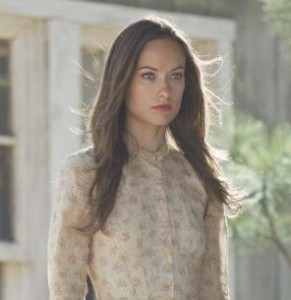 PCN: It’s not her fault they didn’t give her enough to do! I know Ella’s supposed to be mysterious but I got tired of all her lurking and stalking of Jake in the beginning. I was saying in my head, “Just state your business, woman!” Wilde did what she could. She sure had great eyebrows and white teeth for the West in 1873. What did you think of the aliens?
PCN: It’s not her fault they didn’t give her enough to do! I know Ella’s supposed to be mysterious but I got tired of all her lurking and stalking of Jake in the beginning. I was saying in my head, “Just state your business, woman!” Wilde did what she could. She sure had great eyebrows and white teeth for the West in 1873. What did you think of the aliens?
EE: I think we saw too much of them and they lost their fear factor after a while.
PCN: I didn’t find them intimidating at all, and I’m a scaredy cat when it comes to aliens.
EE: They were scarier when we couldn’t really see them and could only hear them. And at first, I thought their spaceships looked liked X-wing fighters!
PCN: I thought that, too! I was expecting Wedge to radio in. But I’m not sure the Force was with this movie.
EE: It’s entertaining. It’s cowboys and aliens. Don’t look for much more than that.
Nerd verdicts: PCN—Cowboys not wild enough in the West, EE—Craig gives Cowboys a kick in the pants
]]>
In case you’re a Help neophyte like me, the story takes place in 1960s Jackson, Mississippi, and follows the travails of black women working as maids for rich white families. The central figures are stalwart Aibileen (Viola Davis) and sassy Minny (Octavia Spencer). Their lives change when Skeeter (Emma Stone), raised by a maid and newly graduated from college with dreams of being a writer, asks to interview them and tell their stories in a book. Since it was illegal at the time to read or write anything that supported racial equality, the maids resist the idea. That is, until events push them into a corner and they can hold their tongue no more.
While the whole cast is superb, there are a few standouts. Davis anchors the movie with her portrayal of a woman much more dignified than her position in life, carrying a world of wisdom and pain in her eyes. Aibileen’s body may be tired but Davis makes it clear her spirit is still strong. Spencer has a breakout role in Minny, almost stealing every scene she’s in with her spunk and comic timing. Perhaps this isn’t surprising since she says the character is “very, very, very loosely based” on her. (See notes from the Q & A below.)
Bryce Dallas Howard plays über mean girl Hilly convincingly because she commits to the character’s ignorance and sense of entitlement. It’s a tricky part she pulls off well. Cicely Tyson has only a couple scenes as Constantine, the maid who raised Skeeter, but she has enough time to make your throat clench up. And Jessica Chastain’s performance as Minny’s employer, Celia, is such a mesmerizing combination of vulnerability, compassion and sex appeal, it explains the actress’s hot streak of prestige films this year (she’s already been seen in The Tree of Life and has about five more projects in the can, including the next Terrence Malick.)
Screenwriter/director Tate Taylor, a friend of Stockett’s from before she wrote the novel, guides the movie with a sure hand. He allows the actors to shine and doesn’t exploit the maids’ suffering. We never see Leroy, Minny’s abusive husband, but we briefly hear the sounds of his violence and can fill in the rest. There are a couple scenes, both involving Allison Janney’s Charlotte, that felt a little synthetic emotionally, but overall Taylor has crafted a truly moving film.
Nerd verdict: Get yourself some Help
After the screening, Davis, Stone, Howard, Janney, Spencer and Chastain (plus a surprise guest) participated in a lively and, at times, poignant Q & A moderated by film critic Pete Hammond. Davis and Spencer were introduced to standing ovations from the audience.
Some highlights of the discussion:
- Davis, who’s from South Carolina, said, “I had a lot of trepidation as a black actress playing a maid.” But she wanted to get involved because “you don’t get many good roles as an actress of color” and it was either “go on a journey” with Aibileen or “have four scenes as a facilitator” in another project. She also didn’t want to be in the audience watching The Help and thinking, “Damn, I want to be in that!”
- About Aibileen, Davis said, “She had no choice. I don’t think she wanted to change the world…she’s not that brave. But she found a purpose as they went along.” When Hammond asked the actress where she thought her character went beyond the story in the novel, Davis said she imagined that Aibileen became a freedom fighter like Fannie Lou Hamer. Spencer interjected, “She opened a restaurant with Minny.”
 In talking about her experience on this movie, Stone said, “It’s incomparable to anything I’d ever been part of before…My mom was a huge fan of the book. Oh boy, she loved the book.” Hammond asked, “So you had no choice—you had to do it?” “I had no choice at all,” Stone replied. “I don’t know if it was the public school [system] in Arizona but my knowledge of the civil rights era was Rosa Parks and Martin Luther King, Jr. That’s it. The greatest gift was learning about everything and the bonding and friendships between [us]. Except Bryce. She was alienated,” she joked.
In talking about her experience on this movie, Stone said, “It’s incomparable to anything I’d ever been part of before…My mom was a huge fan of the book. Oh boy, she loved the book.” Hammond asked, “So you had no choice—you had to do it?” “I had no choice at all,” Stone replied. “I don’t know if it was the public school [system] in Arizona but my knowledge of the civil rights era was Rosa Parks and Martin Luther King, Jr. That’s it. The greatest gift was learning about everything and the bonding and friendships between [us]. Except Bryce. She was alienated,” she joked.- As Howard started talking about her audition for Taylor, Hammond pointed out that the director was in the audience and had him stand up. Then, startlingly, Hammond said that Myrlie Evers-Williams, the widow of slain civil rights leader Medgar Evers, was also in the theater. She stood and waved to a crowd already on its feet to give her a standing ovation. It was an incredibly powerful moment that gave me goosebumps. Her thought on the movie, which touched upon the assassination of her first husband? “I loved it,” she said.
-
Back to Howard, who said she hadn’t read the book when she tried out for the movie. “I was wildly enthusiastic [after I got the part] but then I had a panic attack. I had a Cruella De Vil version in my head but didn’t understand [Hilly’s] psychology at all. I totally judged her.” Eventually, she built a backstory for Hilly, about how people fed her false information that she believed. “She really thought she was doing the right thing. She was ignorant.”
- Janney said she related to Charlotte “because she was afraid of change and sometimes I’m afraid of change…I loved the journey I got to go on, giving Skeeter back her mother.” She said the production had “the best dialect coach. The people down in Greenwood [Mississippi, where part of the movie was shot,] let us come into their homes and just listen to them.”
- Spencer said that Minny is “very, very, very loosely based on certain aspects of my personality. I met Tate sixteen years ago when we were doing A Time to Kill. I was 100 pounds heavier, we were in New Orleans, and Tate, for whatever reason, wanted to take a walking tour.” It was hot, the two were bickering, and “that is when I met Kathryn. Aibileen was regal so Minny had to be short, fat and on fire.” Hammond asked if she went after the role. “The studio was like, ‘[Should we go with] Jennifer Hudson, or this person you don’t know?'” At this point, Spencer put on a fierce stare, as if she was giving a studio exec the evil eye. “It’s the person you don’t know.”
- Spencer added, “We forgot to say thank you to the Myrlies and Martin Luther Kings. This was a way to say thank you.”
 Chastain said, “I really, really fought for [Celia]. I auditioned and read with Octavia. I knew our combination wouldn’t be the same as any other combination…I became obsessed. I had to play this role.” She went on to praise Taylor’s vision and how he became a cheerleader for her. “Somehow he could see me gaining weight, the boobs, the voice,” said the actress, who, with her petite frame and strawberry blond hair, looked drastically different from the busty platinum bombshell she played.
Chastain said, “I really, really fought for [Celia]. I auditioned and read with Octavia. I knew our combination wouldn’t be the same as any other combination…I became obsessed. I had to play this role.” She went on to praise Taylor’s vision and how he became a cheerleader for her. “Somehow he could see me gaining weight, the boobs, the voice,” said the actress, who, with her petite frame and strawberry blond hair, looked drastically different from the busty platinum bombshell she played.- Chastain also told a story about meeting a woman at a party shortly before production began, when she hadn’t quite found her character’s voice yet. The woman sat down next to Chastain and “started talking to me in this voice that sounded like Celia. Then she said, ‘I’m Kitty’s [Stockett’s] mom.’ Octavia and I took her to lunch and I recorded her. She was an extra in the movie” and at one point stood next to Chastain and announced, “I inspired this figure.”
- The cast said they had two weeks of rehearsal, more than they’re usually afforded on movie productions. “Tate really fought for it,” Howard said. “We rehearsed in the houses we were shooting in. They became our houses.”
-
Davis said Cicely Tyson’s legendary performance in The Autobiography of Miss Jane Pittman was what made her pursue acting. She “grew up in abject poverty” and was incredibly inspired when she saw “an expert craftsman…who looked like me.” In watching The Help, “To look up on the screen…” Her voice broke off, choked with emotion. “It’s like my life had come full circle,” Davis finally said.

